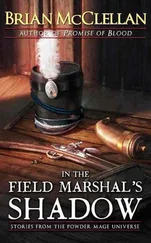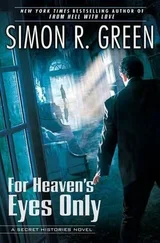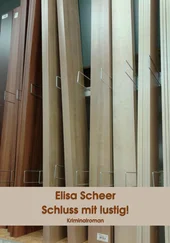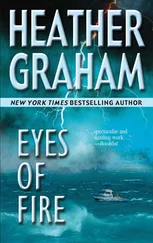On the fifth day they kept silent. Skinny rested and ate. She spent hours in the bath, immersed to her chin, in hot, then tepid and finally cold water — as she was accustomed to. It was unbelievable to feel clean. She divided her day into two halves: during the first half she remembered the faces, hands, feet and bodies of the girls from No. 232 Ost, Madam Kulikowa, the guards and the officers, while in the second half she planned how she would live her new life. At first these ideas were vague but gradually they acquired a sharper outline. No. 232 Ost was always in the background for these. She lay in the water and talked to the girls about what the day held in store, she saw herself passing the guards, recalling individual faces, uniforms, and cars. She was still afraid of The Frog, as though he were just round the corner, instead of the pharmacy, the tailor’s shop, the tavern, the baker and the butcher, with its brightly coloured notices in Hungarian. Lying in the bath, staring at the ceiling, she watched the wolves and swept the snow from the entrance to let the vehicles enter and leave the yard of No. 232 Ost.
On the sixth day the rabbi said to her: “You were in a house without God; in a country without God. Under stars where God was absent.”
It sounded like an echo. Surely he had said this before?
“Among people who had walked away from the Ten Commandments. You were in a heathen, German land.”
“I was in Poland,” Skinny said.
“You were in Europe.”
On the seventh day Rabbi Schapiro asked her — as if she was the rabbi and not he: “Isn’t God everywhere, invisible and omnipresent?”
They were at the end of the circle and back at its beginning.
“He is powerless,” she said, as if this were a question one could answer. That was how it seemed to her. Who was she going to confess this to, if not to a rabbi? She did not want to say it again.
The rabbi was ashamed to look into her half-childish, half-adult green eyes. He did not want to see in them a sea of death covered with ashes. She didn’t only have sad eyes: she had eyes that saw what she had been through and what was ahead of her. There was in her a primitive awareness that she was alive, in spite of everything. That was quite a lot. She was like a small island of life in an ocean of death. She could not admit to herself that with her 15-year-old eyes she had, during those 21 days, seen more than Rabbi Gideon Schapiro in all the years that he was a rabbi; more than all the rabbis of all generations the world over, throughout the past 40 centuries.
He was looking at her long legs, her thin thighs and childish breasts and resisted the thought of the men she had been with. He hesitated to ask the question, which endlessly troubled him: Was God merciful? Or what was the opposite of mercy. He realized that he was not the first person to accuse God.
He had heard, though not at first hand, how the master race had populated the lands between the Elbe and the Urals by clearing them of their original inhabitants. How the armies of the Herrenvolk had opened the spaces in the east in order to turn them into a home for 200 million Germans by exterminating tens of millions, from infants to the elderly.
He heard from Skinny for the first time how Polish children thought suitable for Germanization were rounded up in the east, the way weasels were hunted, or badgers — and sometimes even on horseback with hounds and whips, the way foxes were hunted.
The rabbi gazed into her half-closed green eyes. He was filled with a humility he had not experienced before, he wept and felt ashamed. The smoke of the cremated had risen quickly to the sky because it was pushed up by more smoke, but eventually there was so much of it that it sank down under its own weight. Not even the strongest wind could disperse it. It seemed to him that, like people throughout Europe and the world, he would breathe the smoke of Auschwitz-Birkenau for a long time to come.
Skinny smiled at the rabbi. The corners of his mouth turned up while tears were rolling down his cheeks, wetting the collar ofhis shirt. They understood and did not understand one another.
“When you left home you were a child.”
“I don’t feel like a child any more.”
“A child is not responsible for what it’s made to do.”
“I knew what I was doing. I chose to do it.”
The rabbi was silent. She was tempted to tell something but she didn’t have the courage.
“I would have done more if they’d wanted me to,” she said instead.
“Was it worse at Auschwitz-Birkenau?”
“I told you what was happening at Auschwitz-Birkenau.”
Before her she saw again the German soldiers and men from the technical services, as well as the inmates, all shouting at each other at the railway ramp, the warehouses and around the five crematoria. There were French voices, Yiddish and Hungarian, Slovak, German, Polish and Lithuanian. They were like Martians, like creatures from another planet, but she understood them. They had faces, arms and legs, uniforms or prison clothes. It seemed to her like a gigantic, continuous performance. But soon it would end, not as in the finale in a theatre, after which the audience and the actors go home. This was different. This was real — not a theatrical performance. There was no curtain to go up or fall. Here no secret was made of what was happening. This was what the Germans called Endlösung, the Final Solution. And it was on planet Earth.
Rabbi Schapiro listened, endeavouring to visualize and comprehend, but unable to form a picture of it for himself.
She tried to simplify it for him, to reduce it to concepts by which people communicated. It unnerved her a little that she was facing a rabbi and was unable to convey this to him. How could she make him see? The Germans were no Spartans or ascetics. They had enjoyed the best food while thousands around them starved to death. They lived in villas, even at Auschwitz-Birkenau, in close proximity to the prisoners who were crowded together, worse than sardines, in the wooden huts that had housed Austro-Hungarian cavalrymen. There was no parallel to call on. And it was not something temporary, an emergency situation which the authorities intended to remedy or which (as after the war they tried to do) could be blamed on wartime conditions. This was what they had planned.
She did not say that perhaps the victims were glad they had crossed the bridge which lead nowhere but the gas chamber, that they had reached the end, the Final Solution, after which there was nothing. They had attained their final right or privilege — the right to die.
“There was no heaven there.”
“Auschwitz,” the rabbi whispered.
“On windless days soot would fall from morning to evening.”
“Auschwitz-Birkenau.”
“The inscription over the gate was: Arbeit macht frei.”
She explained to the rabbi that there had been three camps in one, on the area of eight demolished Polish villages. One of them, Brzezinki, was Birkenau. Aryan inmates gave as their address: Arbeitslager Auschwitz near Neu-Berun.
“Auschwitz-Birkenau,” the rabbi repeated.
“Auschwitz-Birkenau,” his echo confirmed.
“Feldbordell No. 232 Ost.”
“Feldbordell No. 232 Ost.”
“How were we born?”
The rabbi let his head drop. He was now smaller than her.
“A child’s birth is not governed by his wishes. No-one knows what awaits him.”
It went deep, far and wide. He had in his eyes a sea that did not divide. A flood which lasted 40 times 40 days and 40 nights. There was no point in counting the days of disaster.
For a wild moment she imagined inviting Rabbi Gideon Schapiro into her cubicle.
The rabbi had become pale during her stay. He suffered terrible headaches. He didn’t eat, and drank only water, occasionally nibbling a crust ofbread. He tried to stifle his anger, to dampen it with humility. Flames of wrath were flickering inside him. He was seeking echoes of his lost confidence. He gazed at her as he would into a mirror. He had come up against something that was not in the sacred books — there was nothing in his sacred books about Auschwitz-Birkenau or No. 232 Ost.
Читать дальше
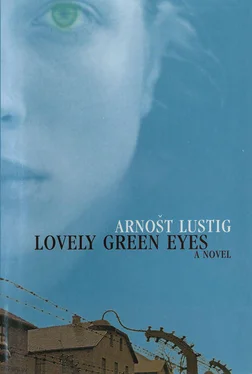

![Корнелл Вулрич - Eyes That Watch You [= The Case of the Talking Eyes]](/books/32103/kornell-vulrich-eyes-that-watch-you-the-case-of-thumb.webp)
